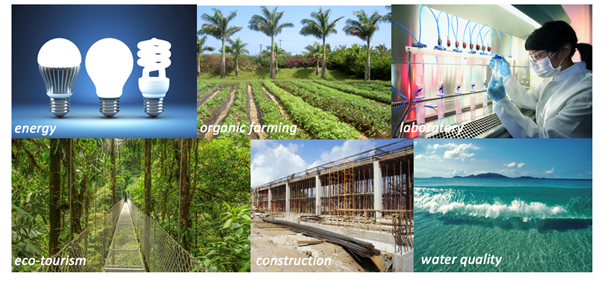For the past 18 months an international team of experts has been beavering away, in an overcrowded room somewhere in the St Lucia Bureau of Standards – with the goal of adding some 500 new international Standards to the country’s existing portfolio of 200 Standards. Why?
Why indeed! Is this exercise going to make our lives better? Richer? Easier? More difficult? Thoroughly miserable? Actually, there are quite a few advantages although they may not be immediately tangible. But first, if you are not familiar with the world of Standards you may want to take a quick glance at a couple of the other articles on this website, demystifying standards and a history of standards.
For many years St Lucia has had a relatively small number of Standards on its books. Many of these are concerned with food safety or product safely. And that’s fine if you are running an economy that depends almost entirely on bananas and tourism. But – as we saw after Hurricane Thomas in 2010 and Tropical Storm Kirk in 2018, it’s not always a great idea to have all your economic eggs in one or two baskets. That’s not to say we don’t want tourists. Of course, we do. But we also need to try and build up the manufacturing and service sectors of the economy – just to retain some kind of balance. One way to do that is to make sure that exporters in one country and importers in another are all playing by the same rules. The World Trade Organization (WTO) tries to do that by making sure that there are no hidden, or non-tariff barriers to trade. That’s why all countries that are engaged in trade apply the same set of Standards, whether it is for food (the Codex standards), electrical products (the IEC Standards) or general goods and services (the ISO standards).

The team at SLBS has identified roughly 500 standards, from the ISO catalogue of more than 22,000 that they believe are relevant to businesses in St Lucia. These standards will go through a review process where anyone in St Lucia can comment on them. If it is felt that any standard poses a safety risk, then changes can be made. Otherwise, the target is to adopt the standard as is.
It is really important to understand that compliance with these standards is completely voluntary. No inspectors are going to come and shut you down if you are not strictly adhering to the letter of the standard. So why comply? Two reasons. First, it is simply much easier to do business with another enterprise, especially one that is outside the country, if you both understand and comply with the relevant standards. Second, if you don’t comply with a National standard and everything goes fine in your business dealings – then everybody is happy. No problem. It’s all good. But if something goes wrong, perhaps there’s a dispute over the quality of workmanship or even an injury, then you are in a rather awkward situation if you wilfully ignored a National Standard. Life becomes much clearer and there are fewer opportunities for misunderstanding if both parties in any contract agree to work to a common standard.
When will our 500 new standards be published? The consultation process has already started. You can see the standards on the SLBS website and submit your comments. The process should take about 9 months, so early next year. You can follow the process on the SLBS website www.slbs.org or, if you are really interested you can sign up to our regular newsletter and notifications by clicking here.